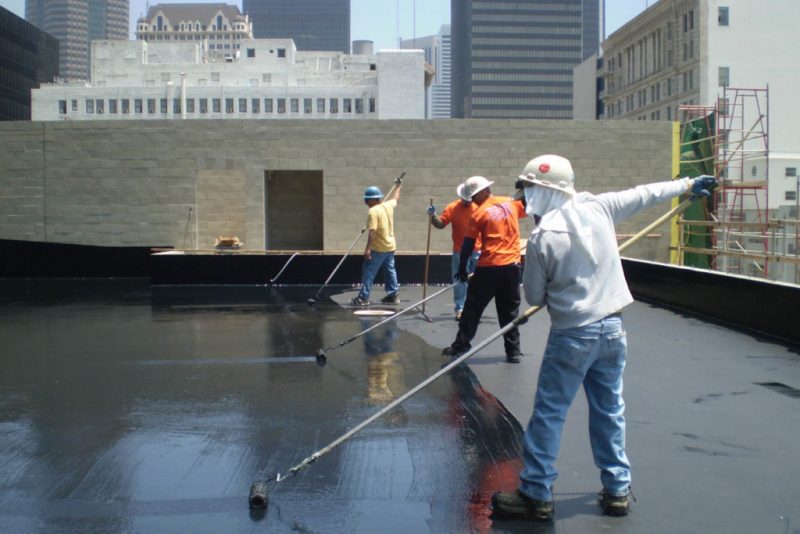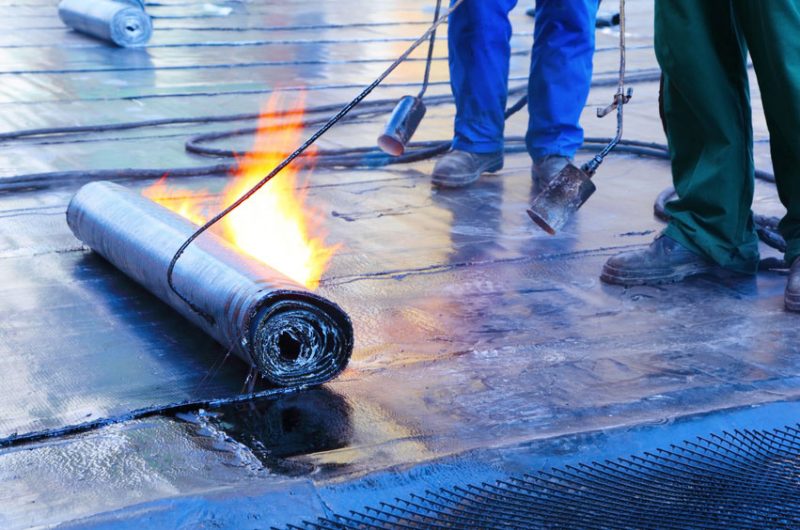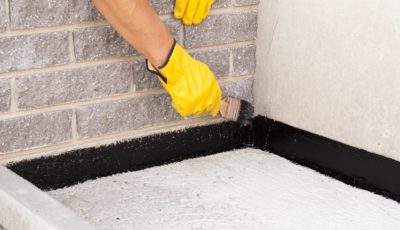Learn Why Waterproofing is Necessary
Rains are disastrous for structures not correctly waterproofed. In such establishments, water can enter from cracks and joints, weaken the structure, and cause internal and external damage. Waterproofing is a technique by which a protective layer is formed on a concrete structure that prevents water from seeping inside. Today, waterproofing solutions are readily available and can be applied with ease.
When you waterproof concrete or other cement-based materials you prolong the durability of the structure. Whether you are preserving a concrete floor or a concrete wall, keeping water out is the most critical step for better longevity. In many countries, it is required by law to waterproof structures like concrete, masonry, and block walls, and there are building codes in place to waterproof flood-prone building zone, areas with high water table and areas with high rain levels.

All sub-structures must be waterproof in a high-rise building, as the foundations are essentially load-bearing walls, supporting incredibly massive structures wherein a material failure is unacceptable. No matter which area you want to waterproof, whether a leaking roof, damp walls, basement, bathroom, kitchen, or terrace, it is essential to address water issues before it causes any significant damage to the structure.
Water breaks concrete down and so it is critical to waterproof it. Not only does the structure start looking bad, but it also gets weaker. Surface damages can be seen on an old mortar or sidewalk where the concrete erodes, exposing base concrete and matrix materials. Only in extreme cases does water quickly destroy concrete, as generally, it takes a few years for damages to start appearing. Typically, if you see a loss on the surface of the wall, it is possible that the underlying structure is also damaged. Hence, if you want a concrete structure to maintain its strength and appearance, you are required to waterproof it. Again, when you waterproof concrete members you also protect the iron-bar inside the concrete from eroding.

Problems like leaking roofs, plaster cracks, and damp walls are common to constructions, old and new. It is essential to address these issues before they weaken and damage the structure. There are plenty of benefits of waterproofing a concrete structure as mentioned in the below listicle:
- Waterproofing prevents fungi like mold and mildew from getting inside your walls and floor of your composition. Therefore, waterproofing is essential for structural integrity and health.
- Again, a waterproofed home or office increases its property value as, during the time of selling, a waterproofed basement is a good selling point as it holds an aesthetic value, and no one wants to buy a property with water problems.
- Waterproofing the entire structure provides one with a peace of mind. It ensures complete protection of your structure from external elements leading to a longer lifespan of the building.
- Using waterproofing solutions during construction can make your structures last longer as it would not come in contact with water.
- Waterproofing done initially during the construction stage vis-à-vis avoiding waterproofing helps one to secure their investment in the long run. As the cost incurred on repairs when one avoids waterproofing is much higher, as compared to the minimal investment that you make towards a correctly waterproofed home.
Products recommended:
For comprehensive waterproofing of any structure, it is important that you choose the correct solution provider. Products like Dr Fixit LW+ is perfect for waterproofing integral structural members such as columns and beams, Dr Fixit Roofseal Flex works right for roofs and terraces, and Dr Fixit Raincoat is the range exclusive for exterior walls. All the products are from the house of Pidilite Industries Limited and are ideal for any new construction; that you are planning to undertake soon.









